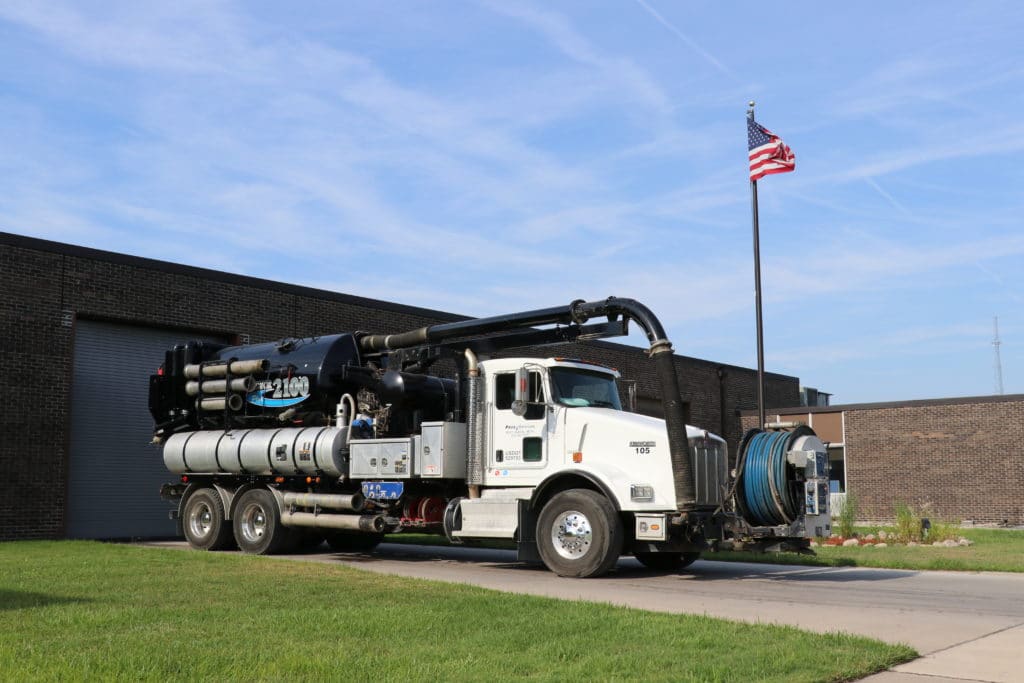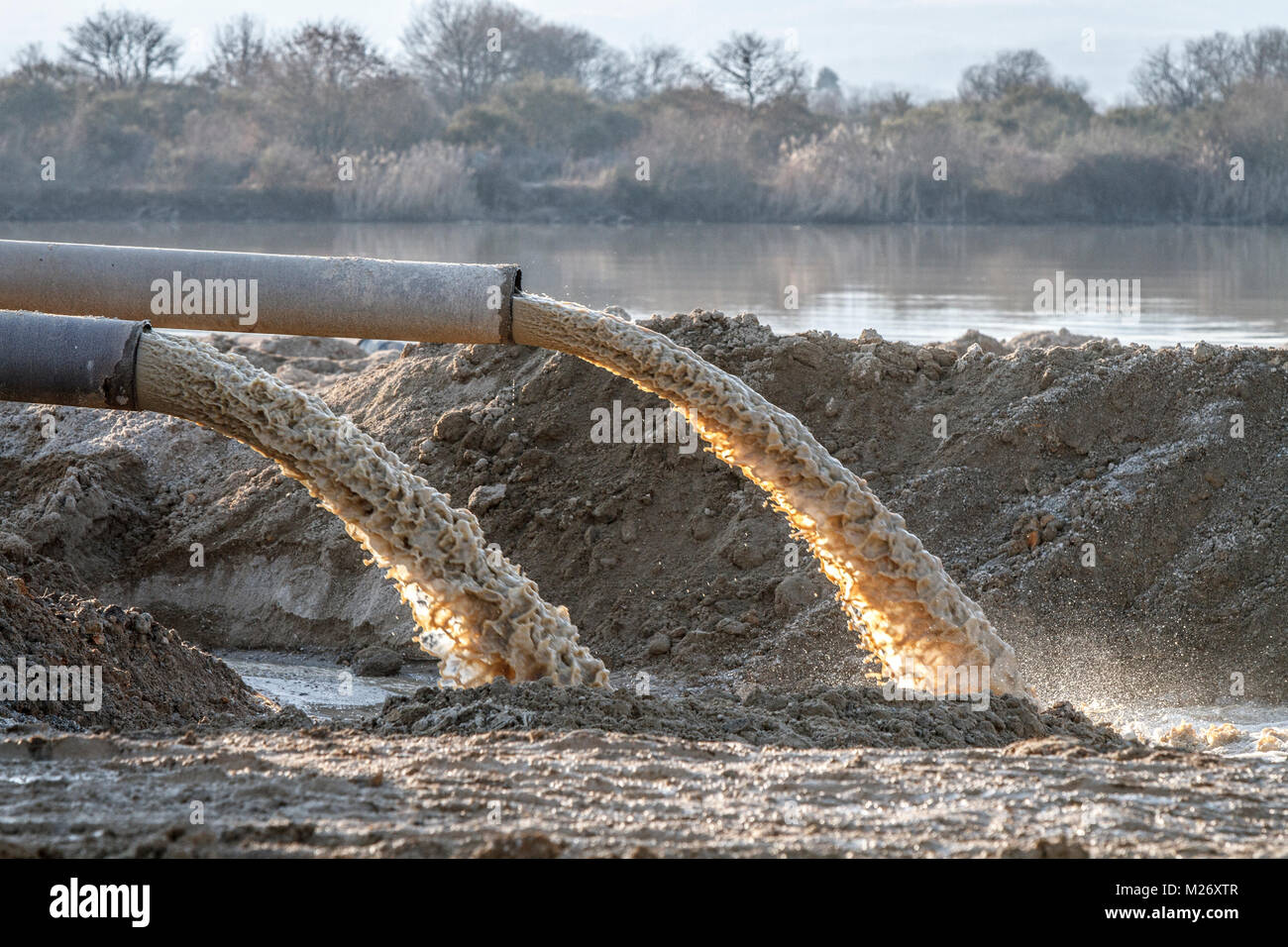Understanding the Comprehensive Process of Fluid Waste Disposal: Ideal Practices and Environmental Impact Factors To Consider
The administration of fluid waste disposal is a diverse issue that requires an extensive understanding of different ideal methods and their connected ecological impacts. From the types of fluid waste created to the techniques utilized for collection, treatment, and last disposal, each step plays an essential role in guarding ecosystems and public health and wellness.
Kinds of Liquid Waste
Understanding the various kinds of fluid waste is crucial for reliable management and disposal techniques. Fluid waste can be generally classified right into numerous kinds, each needing special handling and treatment techniques.
Industrial liquid waste typically includes dangerous materials, consisting of hefty steels, solvents, and chemicals, generated during producing procedures. These wastes demand stringent regulatory conformity to safeguard human wellness and the atmosphere. Domestic liquid waste primarily describes wastewater produced from households, consisting of sewage and greywater, which, although much less toxic, can still posture substantial dangers if incorrectly taken care of.
Agricultural liquid waste, including drainage from farms, commonly includes fertilizers and chemicals that can result in environmental deterioration if not dealt with adequately. Clinical fluid waste, produced from healthcare centers, consists of polluted liquids such as bodily fluids and chemicals, requiring specialized disposal approaches to stop infection and environmental contamination.
Lastly, oil and grease waste, normally generated by restaurants and automobile sectors, can trigger extreme blockages in sewage system systems otherwise managed effectively. Recognizing these classifications helps with targeted approaches for treatment, compliance with laws, and effective disposal methods, ultimately advertising environmental sustainability and public health and wellness safety and security.

Collection Methods
Effective collection techniques are critical for the correct management of liquid waste, making sure that it is collected safely and efficiently before treatment or disposal. Various methods are used depending on the type of fluid waste produced, the volume, and the certain characteristics of the waste.
One common method is making use of committed collection storage tanks or sumps, which are made to catch fluid waste at the source. These systems typically include pumps that help with the transfer of waste to bigger storage containers or treatment facilities. In addition, mobile collection devices geared up with vacuum innovation are utilized in situations where waste is produced periodically or in hard-to-reach locations.
For commercial setups, closed-loop systems can properly decrease spills and leaks, enabling the healing and reuse of fluid waste. It is also important to train workers on appropriate collection methods to minimize dangers related to unsafe substances.
In addition, executing regular maintenance schedules for collection equipment guarantees ideal efficiency and safety and security. The combination of innovative monitoring systems can improve collection performance by supplying real-time data on waste degrees and possible threats. Overall, efficient collection techniques are fundamental to lasting liquid waste monitoring methods.
Treatment Procedures
Treatment procedures play an important duty in the management of liquid waste, transforming potentially unsafe products into safe effluents or multiple-use sources - liquid waste disposal. These processes can be extensively categorized into physical, chemical, and biological methods, each customized to resolve particular pollutants present in the waste stream
Physical therapy techniques, such as sedimentation and filtering, job by getting rid of suspended solids and particulate matter. These techniques are commonly the very first step in the therapy chain, successfully reducing the lots on subsequent processes. Chemical therapies entail using reagents to neutralize unsafe my explanation substances, precipitate hefty steels, or oxidize natural contaminants, thereby improving the safety of the effluent.
Organic therapy processes, consisting of triggered sludge systems and anaerobic digestion, profit from the all-natural abilities of microbes to weaken raw material. These techniques are especially effective for wastewater including naturally degradable pollutants. Advanced treatment modern technologies, such as membrane filtration and advanced oxidation processes, are significantly used to attain greater degrees of filtration.
Including a mix of these therapy techniques not only ensures compliance with regulative requirements yet additionally promotes environmental sustainability by recuperating valuable resources from fluid waste.
Disposal Options
Exactly how can companies make sure the responsible and risk-free disposal of fluid waste? Reliable disposal options are important for securing public wellness and the setting. The main approaches consist of land incineration, disposal, and therapy followed by discharge into municipal wastewater systems.
Land disposal involves the cautious containment of fluid waste in designated land fills, guaranteeing that it does not leach into surrounding soil or water. Incineration, on the various other hand, topics liquid waste to heats, transforming it into ash and gases, which require proper filtering to minimize emissions. This approach appropriates for hazardous wastes that can not be dealt with with standard ways.
In cases where liquid waste can be treated, organizations might choose chemical or organic therapy processes to reduce the effects of dangerous elements prior to releasing the treated effluent into municipal systems. This course generally aligns with governing needs, making sure that the effluent satisfies security criteria.
Eventually, organizations should carry out detailed evaluations of each disposal alternative to establish its feasibility, thinking about elements such as waste make-up, regulatory compliance, and possible threats to health and wellness and the setting. By picking suitable disposal approaches, companies can add to a responsible waste monitoring approach.
Environmental Effect
The ecological impact of liquid waste disposal is a vital factor to consider for organizations looking for to reduce their eco-friendly footprint. Improper disposal approaches can lead to substantial contamination of water sources, dirt deterioration, and adverse impacts on neighborhood communities. For example, harmful fluids can leach into groundwater, posturing risks to alcohol consumption water supplies and water life. In addition, the discharge of unattended or inadequately treated waste right into surface area waters can result in eutrophication, leading to oxygen exhaustion and the subsequent death of fish and other organisms.

To alleviate these effects, organizations must adopt ideal techniques such as carrying out rigorous waste therapy procedures, advertising look at this web-site recycling and reuse, and adhering to regulative requirements. By taking a proactive technique to liquid waste management, entities can substantially reduce their environmental footprint while sustaining sustainable growth objectives. Inevitably, a thorough understanding of the environmental effects related to liquid garbage disposal is crucial for educated decision-making and accountable stewardship of natural deposits.
Conclusion
Efficient monitoring of liquid waste is essential for protecting ecological honesty view it and public health. Eventually, an extensive understanding of liquid waste disposal not only minimizes environmental effects yet likewise fosters a commitment to accountable resource management and ecological stewardship.
The administration of liquid waste disposal is a diverse issue that needs a detailed understanding of numerous best techniques and their connected environmental effects. From the kinds of fluid waste created to the techniques utilized for collection, therapy, and final disposal, each action plays a vital function in protecting ecological communities and public wellness.The environmental impact of fluid waste disposal is a critical factor to consider for organizations seeking to minimize their environmental impact. Eventually, a thorough understanding of the ecological effects associated with liquid waste disposal is necessary for informed decision-making and liable stewardship of all-natural sources.
Eventually, a detailed understanding of fluid waste disposal not just minimizes environmental impacts but additionally fosters a dedication to responsible resource management and environmental stewardship.
Comments on “Leading Liquid Waste Disposal Melbourne: Trusted Providers for Proper Waste Monitoring”